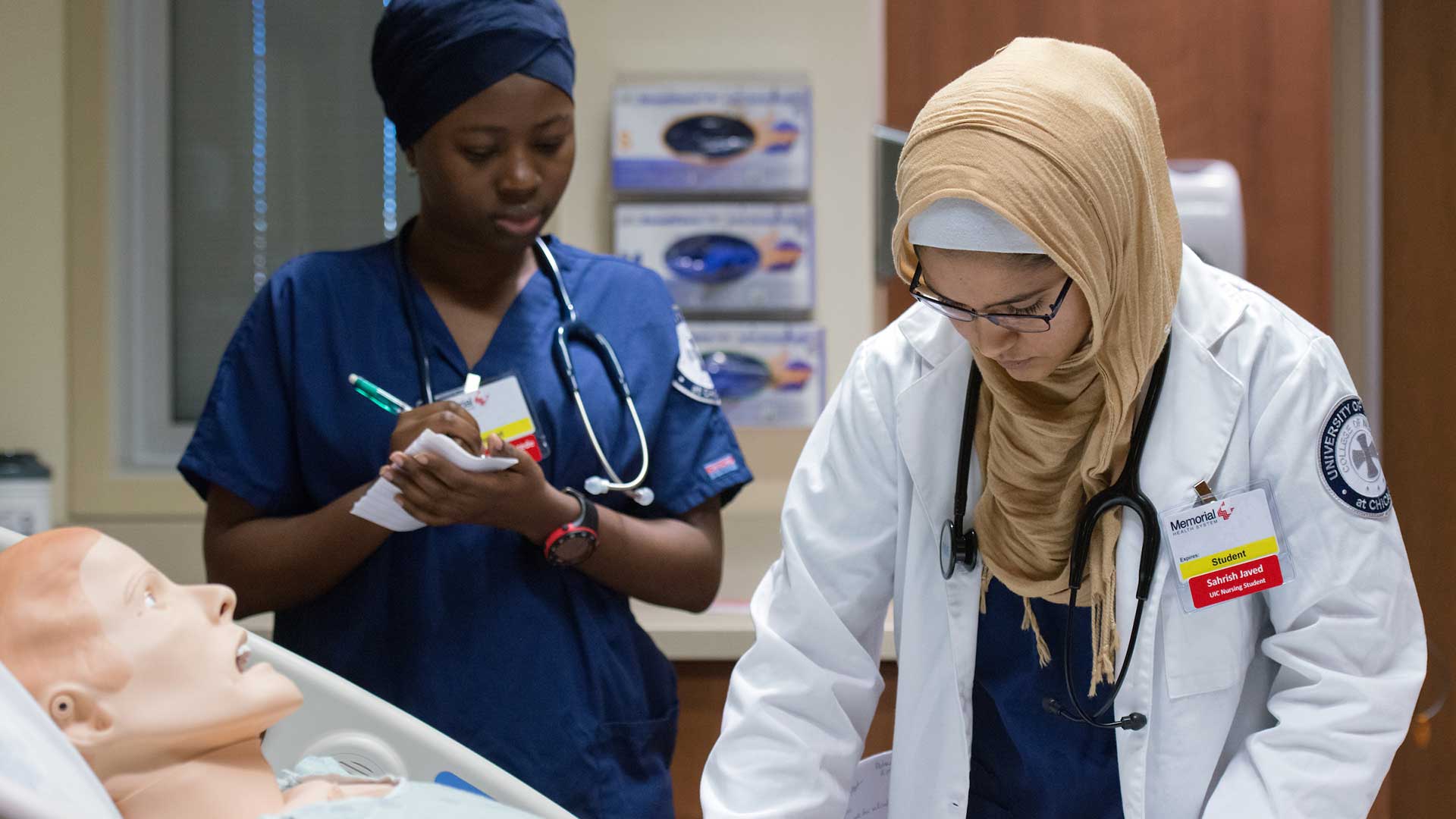FAQs

FAQ’s: Graduate Students
Will I be required to go to Chicago as part of my nursing education?
Face to face classes for graduate students are conducted at the Springfield campus where students may also connect to the other five (5) campuses via distance technology. Graduate students may be required to join classmates in Chicago for a limited number of activities.
How does an Advanced Generalist (AG) function?
The AG is a leadership role designed for nurses who want to make a difference in the clinical setting. At the point of care, the AG acts as the care coordinator for a group of clients, while providing direct care in complex cases. The AG evaluates client outcomes, assesses client risks, and promotes client and family advocacy. The AG role is not limited to the acute care settings; AG prepared nurses focus on delivering effective and efficient care in a fiscally responsible manner across the health continuum.
How does the AG differ from a Clinical Nurse Specialist (CNS)?
While AGs complete additional education in nursing, they are not prepared as advanced practice nurses (APRNs). Advanced practice nurses (clinical nurse specialists, nurse practitioners, nurse midwives) are prepared with specialist education in a defined area of practice. The AG may call on the CNS to provide consultation when a specialist area of concern arises (i.e. when a patient does not respond to nursing care or therapeutics as expected).
Why is UIC changing advanced practice education from the MS to the DNP?
The UIC College of Nursing has a reputation for excellence and vision in nursing education. UIC’s efforts to develop the DNP program are evidence of our responsiveness to the changing dynamic of heath care and our commitment to preparing the most sophisticated and skilled nursing professionals for today and the future. The DNP program is consistent with the American Association of Colleges of Nursing’s call to produce advanced clinicians who are able to address the complex care needs of this environment. The AACN has further stipulated that by 2015, all advanced practice education should be elevated to the DNP degree. In addition, the DNP is supported by the National Academy of Science which has advocated for the development of professional practice doctorates as a route to advanced clinical work in nursing. Employers are quickly recognizing the unique contributions these expert nurses are making in the practice arena, and the demand for DNP-prepared nurses continues to grow.
